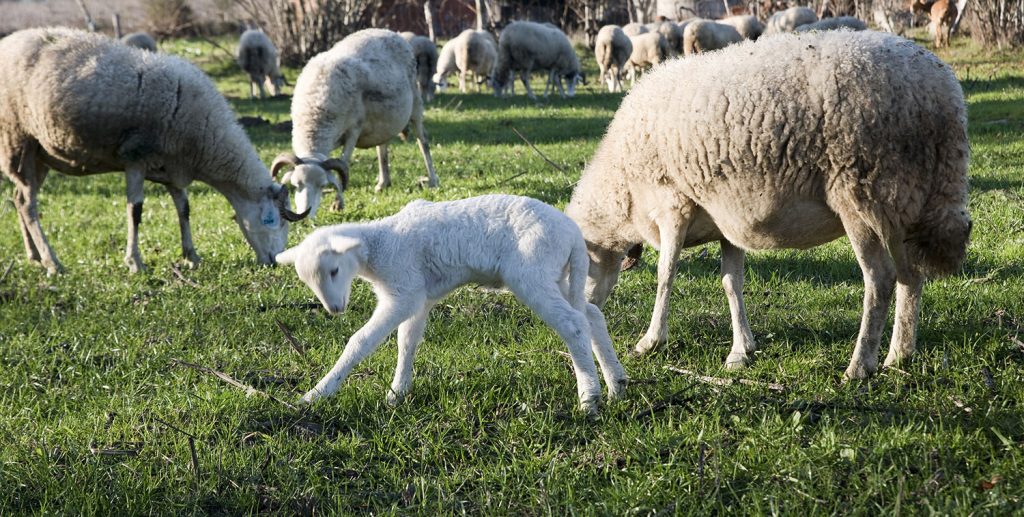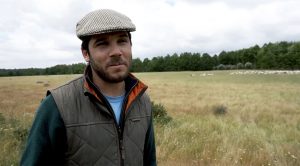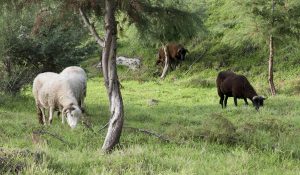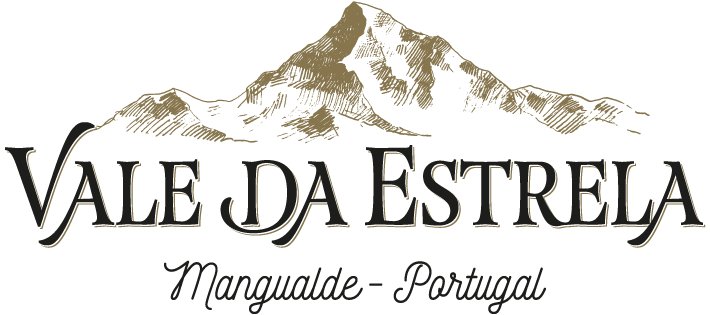SAFEGUARDING THE FUTURE OF THE SHEPHERDS OF SERRA DA ESTRELA

Bordaleiras Sheep
One of the serious effects of the current crisis is felt in the agricultural sector and in pastoralism. The difficulty in selling products is affecting many families and one of the professions, the shepherds, for their tradition, for the commitment they reveal in the contact with nature and with the Bordaleiras sheep, deserve determined support. It’s not just the economy. It’s the culture, it’s an ancestral tradition, with deep roots in this region that could suffer a strong setback when it was gaining new dynamism. One of the examples was the school for shepherds, which was setting new opportunities for the rejuvenation of the profession.
It is with this objective that we make the disclosure of two testimonies.
Carlos Lopes
In an interview with the regional television channel, VISEUNOW, Shepherd Carlos Lopes, 43 years old, from the municipality of Mangualde and who has supplied the milk he has produced to Vale da Estrela since the beginning of the Dairy, in 2016, characterizes the daily life of a Serra da Estrela shepherd, his origin and passion for what he does.
Like so many others in the Serra da Estrela region, Carlos Lopes says that his love for the activity comes from his great-grandparents and grandparents, having aroused curiosity at the age of 15, when he already helped with some of the tasks.
This taste remained over the years, having fixed his flock in the Serra da Estrela sheep breed. At the moment, he has 94 animals and, as he says, “it is the sheep that makes the real Serra da Estrela PDO Cheese”, which “has a strong and bound milk like no other” and, “even with the harsh winter, it always forces you the go to pastures.”
He accumulates the activity of shepherd with another profession, because he says, “that this breed should have more support” so as not to lose its role and it is an autochthonous breed that has existed in Serra da Estrela for over a thousand years. He adds “that as long as I’m healthy and my legs help, I won’t stop being a Serra da Estrela Shepherd”.
João Pires

João Pires
João Pires is a young shepherd, 29 years old, graduated in Animal Science at the Agricultural School of Viseu.
He has in his grandfather the origin of the taste for animals and more specifically for the sheep and goats that, since he was little, are part of his day-to-day. Originally from Covilhã, throughout his course he developed skills in the area of small ruminants and decided to settle in Canas de Senhorim, in the municipality of Nelas.
He currently has a Serra da Estrela sheep herd of approximately 630 animals, one of the largest in the region and is a member of the Board of Estrelacoop, the Serra da Estrela PDO Cheese Producers’ Cooperative.
João Pires says that “in the last 3 years, boosted by the arrival of new investments in PDO cheese dairies, there has been some growth in herds and numbers of shepherds and some increase in the price of milk. We were seeing an improvement in the activity, with a new dynamism and a feeling that together we could build a path to a better future.”
One of the examples cited by João Pires is the School for Shepherds, which started operating last year. “It seeks to attract young people to this activity, promoting new concepts in animal management, infrastructure design, food quality and safety.”
The Shepherds School was working with 20 students in Viseu. “Also, within the scope of this initiative, financial support was defined for the installation of young shepherds in the demarcated region for the production of Serra da Estrela PDO Cheese.” However, “with the COVID-19 pandemic and social isolation, all this is at stake, creating enormous difficulties.”

Bordaleiras sheep
João Pires also mentions that the shepherd’s routine “allows him to be away from the stress of these public health issues. On the part of milk production, I believe that associations and public entities should be promoting support to our primary sector, directly and swiftly. However, and in the case of Serra da Estrela PDO, the cheese dairies are making a huge effort and have kept collecting milk from the shepherds, which makes all the difference to our survival.”
In the opinion of the director of Estrelacoop, “what has to be thought of immediately are strategies and measures to support the cheese dairies to sell the cheese they are producing, because if we don’t, in September with the return of milk production, dairies probably won’t have the capacity to turn milk into cheese.”
João Pires expresses his wishes: “it is the right time to definitely bring some justice to these people. The Beirões are very resilient people, which is why we are talking about a product with over a thousand years of history and tradition. The best help that can be given to the entire value cycle of Queijo Serra da Estrela PDO is to value the product at the time of sale, to get the message across to consumers about the richness of the product and the justice that needs to be done. If we achieve this, this value will be brought to all stakeholders, from the shepherd to the cheese dairies. Official entities have to promote national products, protect what are traditional products, such as the PDO, promoting their value and importance in the national gastronomic culture. On the other hand, the Portuguese should privilege the purchase of our products, in particular this Cheese, which is a unique product in the world.”
It is in this expectation that João Pires adds that “they are committed to continuing to attract new shepherds, to improve the conditions of animal handling, the introduction of technology. But, in order to keep this product for another thousand years, it is necessary that the cheese is dully valued, and that the Portuguese also feel that they are part of this national gastronomic wealth.”
Another characteristic of João Pires is that he does not give up – “I usually say that my sheep are my life.”
